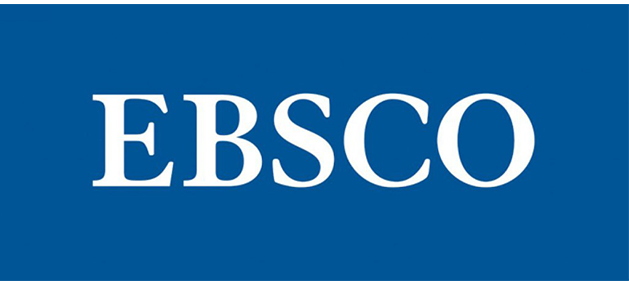INNOVATION AS THE BASIS OF MODERN COMPETITIVE COMPANIES
Keywords:
innovation, competitiveness, efficiency, teamwork, knowledge exchange, team synergyAbstract
Dynamic business environment with the growing interdependence of all business participants causes modern companies to base their business strategies on innovation and constant changes. Companies tend to provide a distinctive competence that allows them to build, do or perform something slightly better than their competitors. That requires a maximum consideration of technology potentials and possession of a wide range of knowledge and capability. The open innovation model, based on cooperation and exchange of knowledge and experience, quickly leads to new products, services, or new business processes and managerial approach, and includes both employees and customers and partners of the company. Competent teams of specialists provide a synergy of knowledge and innovation and they make the process more efficient and more successful. The aim of empirical study presented in this paper is to examine the effects of teamwork on the performance and competitiveness of business. Teamwork is seen through the synergy of the team, skills of the staff, innovations and quality. Emphasis is placed on innovation as the most important factor of competitiveness in the global and domestic markets.
References
Bateman, B., Wilson C. F. & Bingham, D. (2002). Team effectiveness – development of an audit questionnsire. Journal of Management Developement, Vol. 21, No. 3, 215–226.
Certo, S.C., Certo, S.T. (2008). Moderni menadžment, Zagreb: Mate.
Chesbrough, H. ( 2003). Open Innovation: The New Imperative for Creating and Profiting from Technology. Harvard Business School Press.
Den Hertog, P. (2010). Phd Thesis: Managing service innovation: firm-level dynamic capabilities and policy options. Netherlands: Amsterdam Business School Research Institute.
Dodgson, M., Gann, D. & Salter, A. (2008). The Management of Technological Innovation. USA: Oxford University Press.
Draker, P. (2003). Moj pogled na menadžment, Novi Sad: Adižes.
Feams, D., De Visser, M., Andries, P. & Van Looy, B. (2010). Technology Alliance Portfolios and Financial: Value–Encancing Cost–Increasing Effects of Open Innovation. Journal of Product management, 27 (6), 785–796.
Goffin, K., Mitchell, R. (2012). Innovation Management. NY: Palgrave Macmillan.
Ingram, H., Teare, R., Scheuing, E. & Armistead, C. (1997). A system model of effective teamwork. The TQM Magazine, Vol. 9, No. 2, 118–127.
Kelley, J. D, Colarelli O’Connor, G., Neck, H. & Peters, L. (2011). Building an Organizational Capability for Radical Innovation: The Direct Managerial Role. Journal of Engineering and Technology Management, 28, pp. 249–267.
Lekić, S. (2010). Uticaj organizacionog ponašanja na organizacionu posvećenost. Doktorska disertacija. Novi Pazar: Fakultet za menadžment i poslovnu ekonomiju.
Lekić, S., Erić, I. (2016). Organizaciono ponašanje. Beograd: Beogradska poslovna škola – Visoka škola strukovnih studija.
Lekić, S., Vapa–Tankosić, J. (2017). Značaj jedinstvenog pravnog okvira za process sprečavanja pranja novca u bankarstvu. Kultura polisa, god. XIV (2017), posebno izdanje, Kultura – Polis Novi Sad, Institut za evropske studije Beograd, Novi Sad, 2017, str. 221–240.
OECD (2005), Oslo Manuel – The Measurement of Scientific and Technological Activities. 3rd edition. Paris.
Pavličić, D. (2010). Teorija odlučivanja. Beograd: Ekonomski fakultet.
Porter M. E. (1990). The Competitive Advantage of Nations. New York: Free Press.
Robbins, S. P, Timoty. A. (2009). Organizacijsko ponašanje. Zagreb: Mate.
Salomo, S., Weise, J. & Gemunden, H. (2007). NPD Planning Activities and Innovation Performance: The Mediating Role of Process Management and the Moderating Effect of Product Innovativeness. Journal of product innovation management, 24, pp. 285–302. Schumpeter J. (1939). Business Cycles. New York: McGraw Hill.
Smith, K.G., Collins, C.J., Clark, K.D. (2005). Existing Knowledge, Knowledge Creation Capability, and the Rate of New Product in Production in High – technology Firms. Academy of Management Journal, 48, pp. 346–357.
Unković, M. (2010). Međunarodna ekonomija. Beograd: Univerzitet Singidunum, Beograd.
West, J., Gallagher, S. (2006). Challenges of open innovation: the paradox of firm investment in open–source software. R&D Management, 36 (3), 319– 331.
Williams, Ch. (2010). Principi menadžmenta. Beograd, Data Status.
Downloads
Published
How to Cite
Issue
Section
License

This work is licensed under a Creative Commons Attribution 4.0 International License.
http://creativecommons.org/licenses/by-nc-nd/4.0














